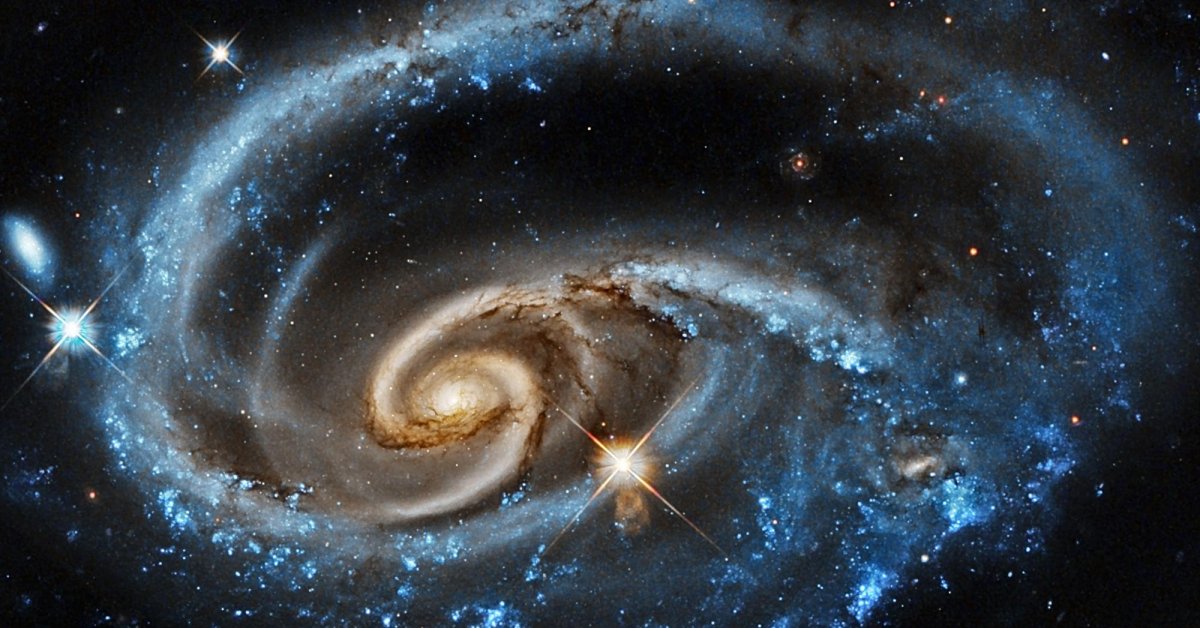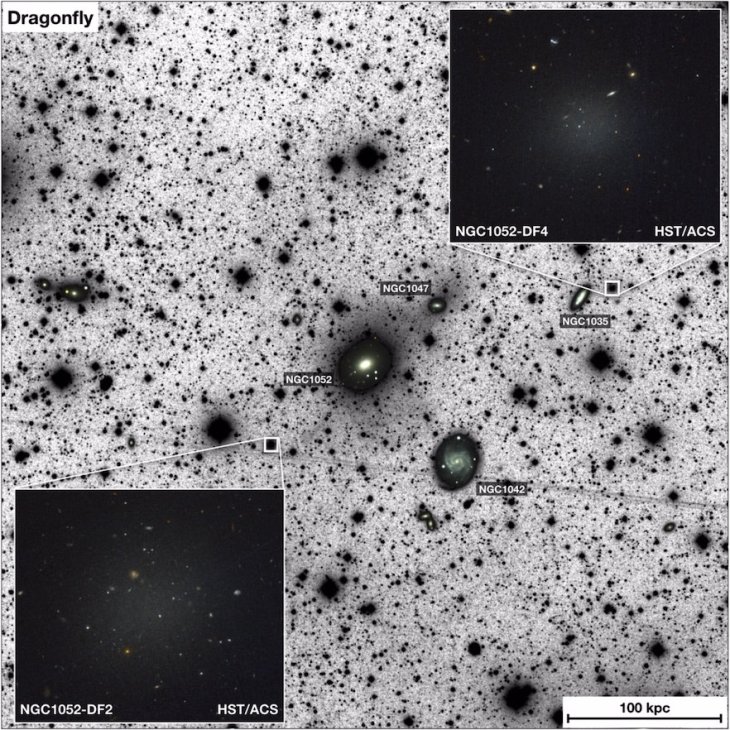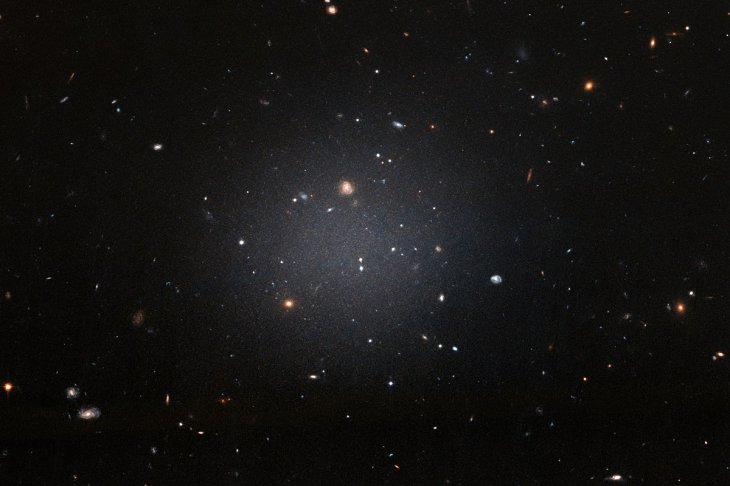Galaxies Without Dark Matter Are Real, Two New Studies Confirm
Dhir Acharya - Apr 02, 2019

Last year, there were a lot of controversies around a claim that some galaxies don’t have dark matter. Now, this claim has been confirmed by two studies.
- Scientists Discover That Earth's Atmosphere Stretches Beyond The Moon
- Nuking Asteroids Coming To Earth Is Harder Than We Thought
- A New Theory On Fast Radio Bursts Might Be The Answer For The Source Of These Mysterious Cosmic Events
Last year, there were a lot of controversies around a claim that some galaxies don’t have dark matter. Now, this claim has been confirmed by two studies.
Both studies were conducted by teams led by Yale University’s Pieter van Dokkum, also who made the initial statement in March 2018.
Dokkum’s claim is based on the observation of NGC 1052-DF2 galaxy that he first spotted the year before. From the Hawaii-based Keck Observatory, Dokkum together with his colleagues noticed something strange in the way the globular clusters containing the galaxy were moving.
Their traveling speeds suggested that the galaxy’s total mass weighs the same as its visible matter components. Dark matter is invisible and accounts for a large proportion of the mass within the universe. If NGC 1052-DF2 had dark matter, the whole thing would move at a much higher speed.

Image from Keck Observatory
So it’s inevitable to conclude that the galaxy didn’t contain any dark matter, which is impossible.
When the study results came out in the journal Nature, there was skepticism, astonishment, and even anger.
Dokkum shared that sometimes it was stressful. He continued by stressing that the scientific process should work this way. When noticing something interesting that people disagree, a scientist will collect new data and end up learning even more about the universe. However, while most critics are polite and constructive, some are not. Dokkum added that with each new critique coming out, the team had to work and find what they might have missed.
However, the two latest papers have proved that they hadn’t missed anything.

NGC 1052-DF2 galaxy
One of them illustrating updated and further details observations of NGC 1052-DF2 using Keck, which was published in The Astrophysical Journal Letters. The study results confirm that the globular clusters of the galaxy moved at the same speed with what expected from just stellar mass.
With this result, one question left to answer is if this lack of dark matter happens to only this galaxy or more than that.
The second paper gave the answer, also published in The Astrophysical Journal Letters. Accordingly, NGC1052-DF2 is not the only galaxy to lack dark matter. This paper indicates the researchers’ discovery of a similar galaxy, dubbed NGC 1052-DF4.

Featured Stories

Features - Jan 29, 2026
Permanently Deleting Your Instagram Account: A Complete Step-by-Step Tutorial

Features - Jul 01, 2025
What Are The Fastest Passenger Vehicles Ever Created?

Features - Jun 25, 2025
Japan Hydrogen Breakthrough: Scientists Crack the Clean Energy Code with...

ICT News - Jun 25, 2025
AI Intimidation Tactics: CEOs Turn Flawed Technology Into Employee Fear Machine

Review - Jun 25, 2025
Windows 11 Problems: Is Microsoft's "Best" OS Actually Getting Worse?

Features - Jun 22, 2025
Telegram Founder Pavel Durov Plans to Split $14 Billion Fortune Among 106 Children

ICT News - Jun 22, 2025
Neuralink Telepathy Chip Enables Quadriplegic Rob Greiner to Control Games with...

Features - Jun 21, 2025
This Over $100 Bottle Has Nothing But Fresh Air Inside

Features - Jun 18, 2025
Best Mobile VPN Apps for Gaming 2025: Complete Guide

Features - Jun 18, 2025
A Math Formula Tells Us How Long Everything Will Live
Read more

ICT News- Feb 19, 2026
Escalating Costs for NVIDIA RTX 50 Series GPUs: RTX 5090 Tops $5,000, RTX 5060 Ti Closes in on RTX 5070 Pricing
As the RTX 50 series continues to push boundaries in gaming and AI, these price trends raise questions about accessibility for average gamers.

ICT News- Feb 20, 2026
Tech Leaders Question AI Agents' Value: Human Labor Remains More Affordable
In a recent episode of the All-In podcast, prominent tech investors and entrepreneurs expressed skepticism about the immediate practicality of deploying AI agents in business operations.

ICT News- Feb 18, 2026
Google's Project Toscana: Elevating Pixel Face Unlock to Rival Apple's Face ID
As the smartphone landscape evolves, Google's push toward superior face unlock technology underscores its ambition to close the gap with Apple in user security and convenience.
Comments
Sort by Newest | Popular